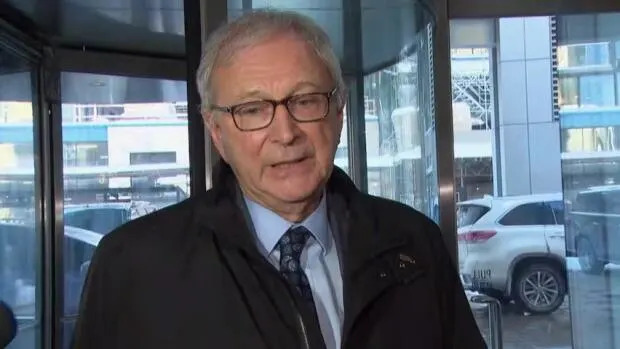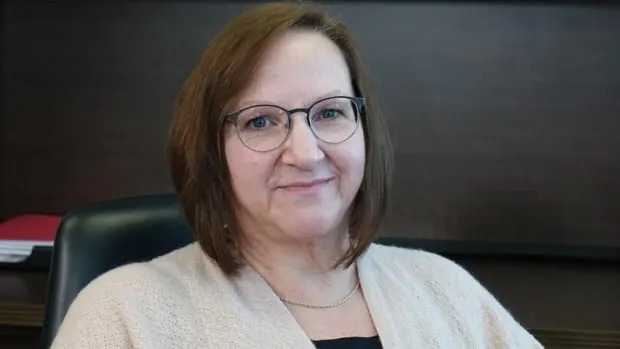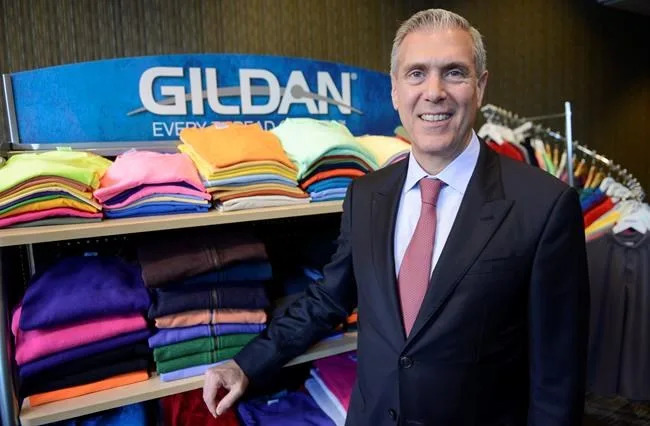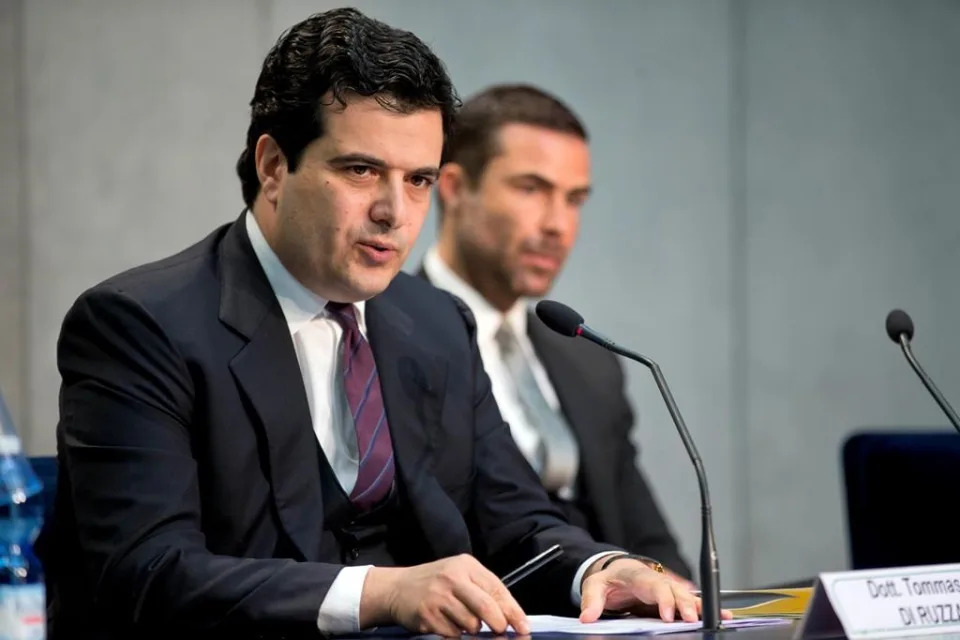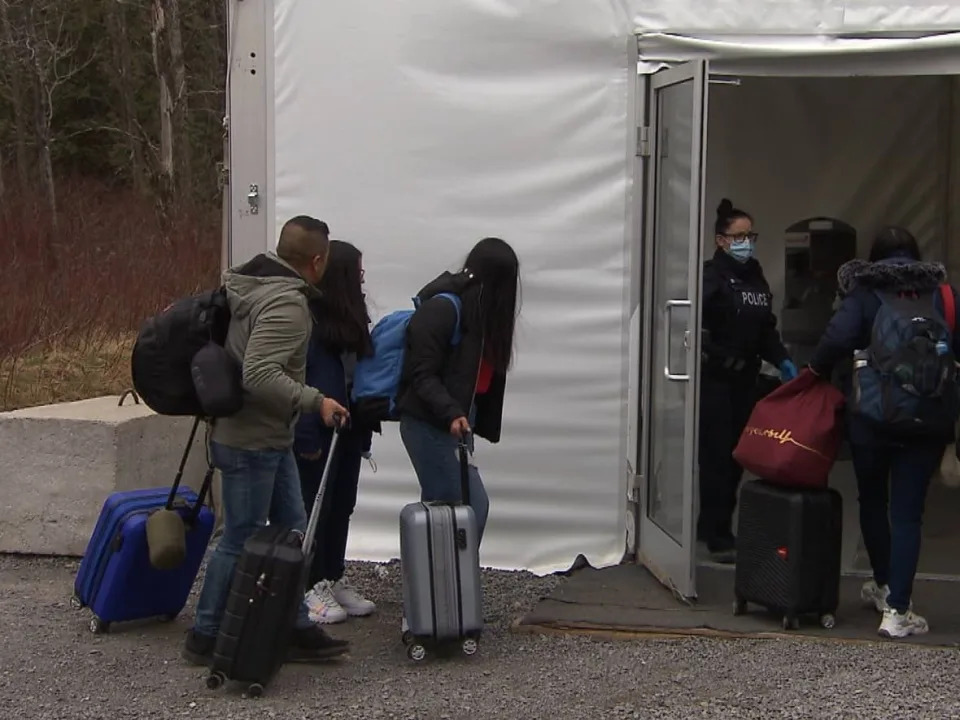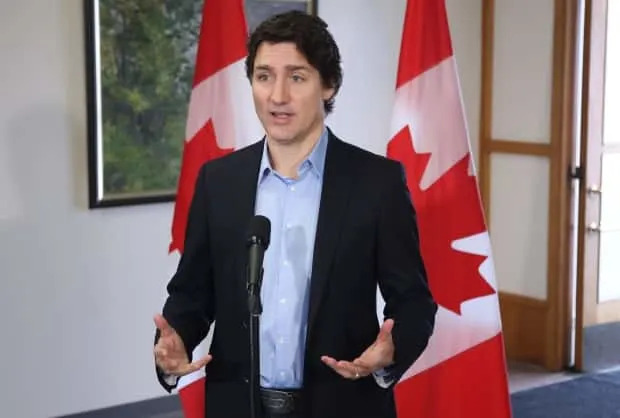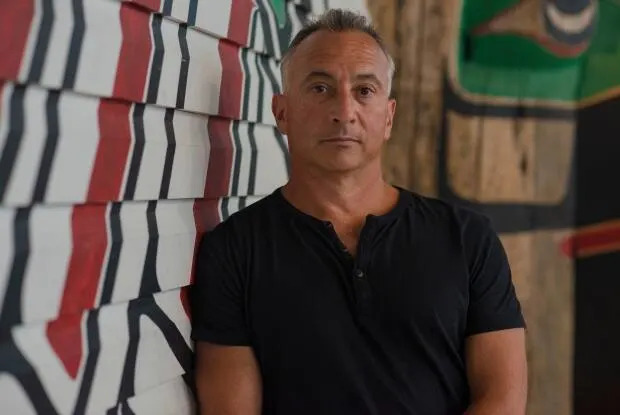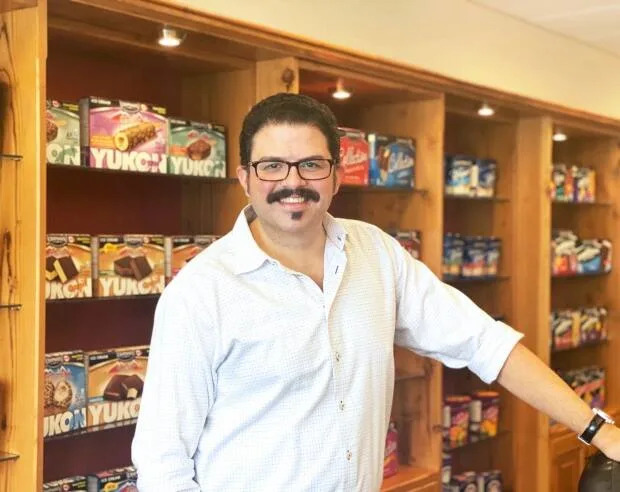Wed, February 22, 2023
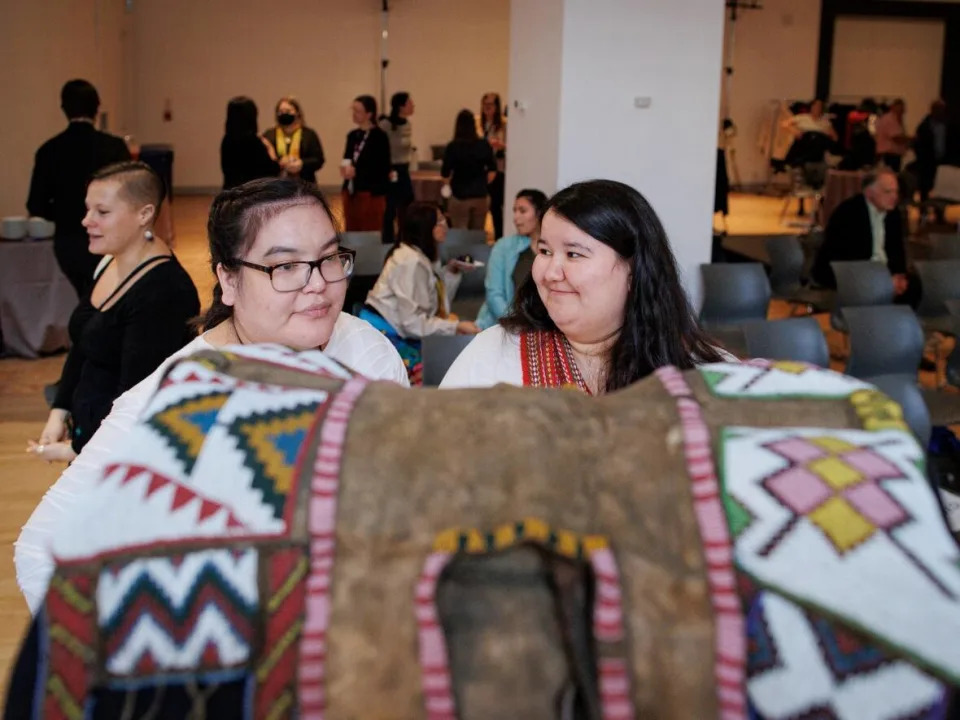
Nikita Ashley Poundmaker, left, and lawyer and family friend Lawren Trotchie look at a saddle during a repatriation ceremony at the Royal Ontario Museum, in Toronto, on Feb. 22, 2023. A pipe and saddle belonging to Chief Poundmaker were returned to the family from the ROM collections.
(Evan Mitsui/CBC - image credit)
Century old artifacts belonging to a 19th century Plains Cree chief who was known as a peacekeeper were returned to his descendants in a repatriation ceremony at the Royal Ontario Museum.
After months of conversation, the Toronto-based museum transferred a ceremonial pipe and a saddle bag that belonged to Chief Poundmaker back to members of his family on Wednesday.
Pauline Poundmaker, or Brown Bear Woman, has been leading efforts to repatriate her great-great-grandfather's belongings and sacred objects from collections held in Canada and internationally.
"It's an honour to be the generation that's able to bring these artifacts home," she said in a phone interview.
Under Poundmaker Cree Nation laws, descendants are required to initiate and lead repatriation. Poundmaker's family members are striving to bring home his personal belongings, which they say were taken from him under duress.
Pauline Poundmaker travelled this week from Saskatchewan to Toronto with nine others, including other direct descendants, to partake in a repatriation ceremony with staff at the museum.
It was the first time she got to see the two items in person that belonged to her great-great-grandfather. The special moment was sacred and emotional, she said.
"I had a moment there where I couldn't hold back the tears. The significance of being here and the honour it is to be able to bring these artifacts home. It's hard to describe."
A famed 19th century Indigenous leader
The museum acquired the two items nearly a century ago. The saddle bag is made out of tan hide and adorned with beads in colours ranging from red, yellow and green. The museum said the item was sold to them in 1924.
The ceremonial pipe is dark in colour and made out of ceramic or stone. Like many First Nations customs objects used in ceremony, the pipe cannot be photographed. The museum said in an email information from the donor suggests Chief Poundmaker presented the pipe to a doctor in 1885 after which is was passed down to others in the medical field before the museum received it in 1936.
The ROM did not make any representatives available for an interview ahead of the repatriation ceremony.
Century old artifacts belonging to a 19th century Plains Cree chief who was known as a peacekeeper were returned to his descendants in a repatriation ceremony at the Royal Ontario Museum.
After months of conversation, the Toronto-based museum transferred a ceremonial pipe and a saddle bag that belonged to Chief Poundmaker back to members of his family on Wednesday.
Pauline Poundmaker, or Brown Bear Woman, has been leading efforts to repatriate her great-great-grandfather's belongings and sacred objects from collections held in Canada and internationally.
"It's an honour to be the generation that's able to bring these artifacts home," she said in a phone interview.
Under Poundmaker Cree Nation laws, descendants are required to initiate and lead repatriation. Poundmaker's family members are striving to bring home his personal belongings, which they say were taken from him under duress.
Pauline Poundmaker travelled this week from Saskatchewan to Toronto with nine others, including other direct descendants, to partake in a repatriation ceremony with staff at the museum.
It was the first time she got to see the two items in person that belonged to her great-great-grandfather. The special moment was sacred and emotional, she said.
"I had a moment there where I couldn't hold back the tears. The significance of being here and the honour it is to be able to bring these artifacts home. It's hard to describe."
A famed 19th century Indigenous leader
The museum acquired the two items nearly a century ago. The saddle bag is made out of tan hide and adorned with beads in colours ranging from red, yellow and green. The museum said the item was sold to them in 1924.
The ceremonial pipe is dark in colour and made out of ceramic or stone. Like many First Nations customs objects used in ceremony, the pipe cannot be photographed. The museum said in an email information from the donor suggests Chief Poundmaker presented the pipe to a doctor in 1885 after which is was passed down to others in the medical field before the museum received it in 1936.
The ROM did not make any representatives available for an interview ahead of the repatriation ceremony.
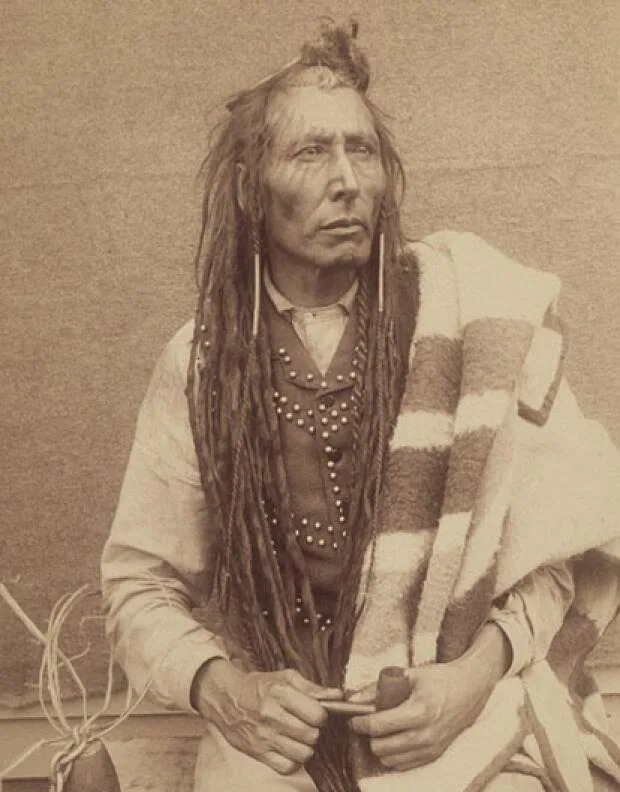
Oliver Buell/Library and Archives Canada
Poundmaker, whose Cree name is Pitikwahanapiwiyin, is considered one of the great Indigenous leaders of the 19th century and was key in negotiations that led to Treaty 6, which covers the west-central portions of present-day Alberta and Saskatchewan.
A number of the leader's belongings were taken and housed in museums after the Northwest Rebellion in 1885 — the same year Poundmaker was convicted of treason for leading his warriors in the battle against Canadian Forces after government soldiers attacked about 1,500 Indigenous people, including women and children. He served seven months before dying shortly after his release.
Prime Minister Justin Trudeau issued a formal apology and exoneration for Poundmaker at the First Nation that bears his name in 2019.
As the Poundmaker family strives to bring home the personal artifacts of Chief Poundmaker, they continue to be inspired by his willingness to stand up for what he believed in a peaceful way, said Pauline Poundmaker.
Parks Canada returned a ceremonial staff believed to belong to Chief Poundmaker last year that is to be put on display at the museum named in his honour in Saskatchewan.
Addressing harm
Pauline Poundmaker says the growing movement of institutions repatriating items shows there is a willingness to address previous harms against Indigenous Peoples.
"It's a beautiful shift to having different relationships and writing a different history," she said.
The saddle bag is to be put on display at the Chief Poundmaker Museum and the ceremonial pipe will be placed in safe keeping with the museum. The museum is tasked with making sure they are equipped with the tools to preserve the items for generations to come, said Pauline Poundmaker.
"We want to continue to preserve our history and honour history."
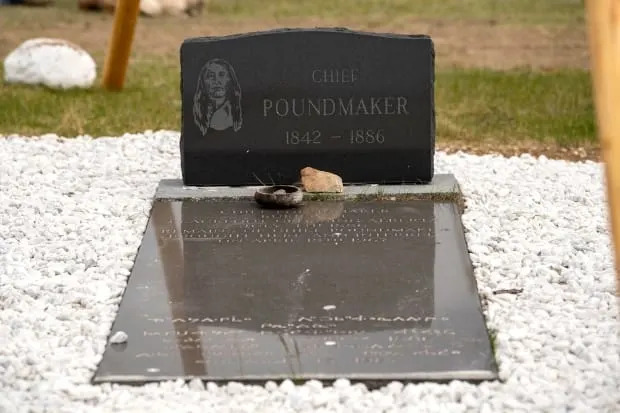
Liam Richards/The Canadian Press
She has been told there are about 20 other items spread across North America and Europe. The family is in the beginning stages of getting two other items repatriated.
The Royal Ontario Museum temporarily closed its gallery dedicated to First Peoples art and culture last year to work with Indigenous museum professionals on what they called critical changes to the gallery.


